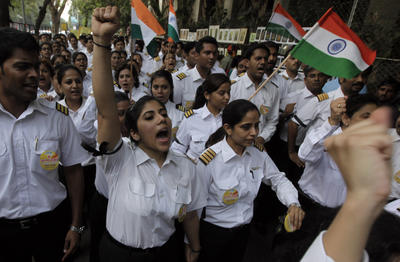Equally, though, we should agree that with cancer only surgery works and homeopathic or ayurvedic approaches will not.
The fundamental problem is the lack of policy clarity toward state-owned enterprises (SOEs). The rationale in the Nehruvian era was to establish industries as SOEs because the private sector was incapable of running them, given its own frailties. This made SOEs complementary to the private sector in the country’s development and modernisation agenda. Subsequently, the rationale was changed for the Indian state to control the ‘commanding heights of the economy’ allowing it to steer the economy in the desired direction. This model brought economic stagnation of the 1960s and the 1970s from which the economy broke out only after the reforms of the early 1990s. This saw the share of the private sector increasing across the entire spectrum of economic activities. There was unfortunately no intellectual effort to provide a rationale for SOEs in the dramatically changed domestic and global context with the demise of the Soviet Union, the emergence of Chinese form of social capitalism and the growth of dynamic domestic entrepreneurship. Consequently, since 1991, the great majority of our SOEs have continued to exist without a clear rationale, devoid of a sense of national purpose and with the proverbial Damocles sword of privatisation and creeping disinvestment hanging over them.
Air India, like other SOEs, suffers from this fundamental existential malady. It is not only unfair, but also dishonest and disingenuous to expect them to perform satisfactorily under such circumstances. The fact that some of them, like NTPC, ONGC, BHEL, GAIL, EIL, SBI, and a handful of others continue to turn in sterling performances despite this mortal handicap is only a testimony to individual brilliance in some cases and the prevalence of hidden or overt subsidies or government’s implicit guarantee for their survival.
It is therefore gratifying to note that Mr Ravi, who has just taken over as the minister, announced his commitment to make a success of Air India. It is also equally heartening to note that he has not constrained his options of achieving this success within the framework of public sector ownership and management. Both options of privatising Air India or handing over the management to a private sector strategic partner must now be on his table. While looking at these options, the Minister should tackle headlong the emotive issue of keeping Air India afloat simply because it is the so-called national carrier. A sick national carrier does not bring any glory to the country. Other domestic carriers, such as Jet and Kingfisher, which are becoming well known globally, do the country equally proud.
Even if the airline was privatised but maintained its iconic Maharaja symbol and name, it would for all practical purposes still be seen as India’s national carrier. The only real difference would be that government departments would not with impunity hold back the payment of their dues to the company as they presently do with the Rs 800 crore being held back for payment of VVIP duties and Rs 200 crore owed by the defence department. And most importantly, the airline will not be at the beck and call of political leaders and senior officials with schedules being changed and passenger reservations being cancelled simply because the exigencies of official travel. This has been the one of the most debilitating features that makes Air India an undependable carrier, resulting in its declining market share, which sank to a pitiable 15 per cent in April 2011, despite its the airline having the largest fleet by far.
No short term or patchwork measures will now suffice. All these have been tried earlier and without success. The airline has to be run as a modern corporation freed from the burdens imposed by its 14 trade unions, the false assurance of unlimited support from the public exchequer and a management that has virtually zero accountability for its performance. Outright privatisation is perhaps impractical in the given political conditions. A way forward could be to make the airlines a cooperative venture of all its employees with the government giving it the initial thrust by cleaning the financial slate by restructuring its debt. The employee cooperative could well join hands with a strategic management partner and link their own take from the company to its actual performance. There is no other way forward in my view. It may even be better to shut down the airline during the time it takes for such a surgical solution rather than incur a loss of Rs 57 crore each day. As we know, cancer requires surgery and strong post operative medication. Trying out grandmother’s remedies will only prolong the agony of a terminally ill patient and make for a sorry and costly spectacle.
Rajiv Kumar is the Director General of the Federation of Indian Chambers of Commerce and Industry. An earlier version of this essay appeared on Businessline, 14 May 2011.

